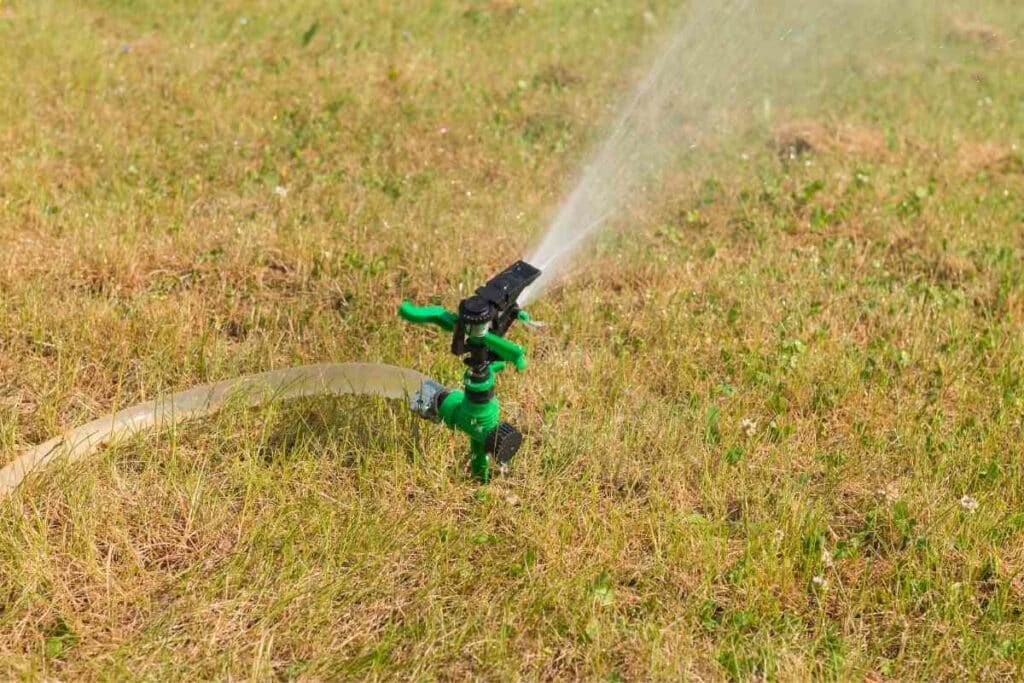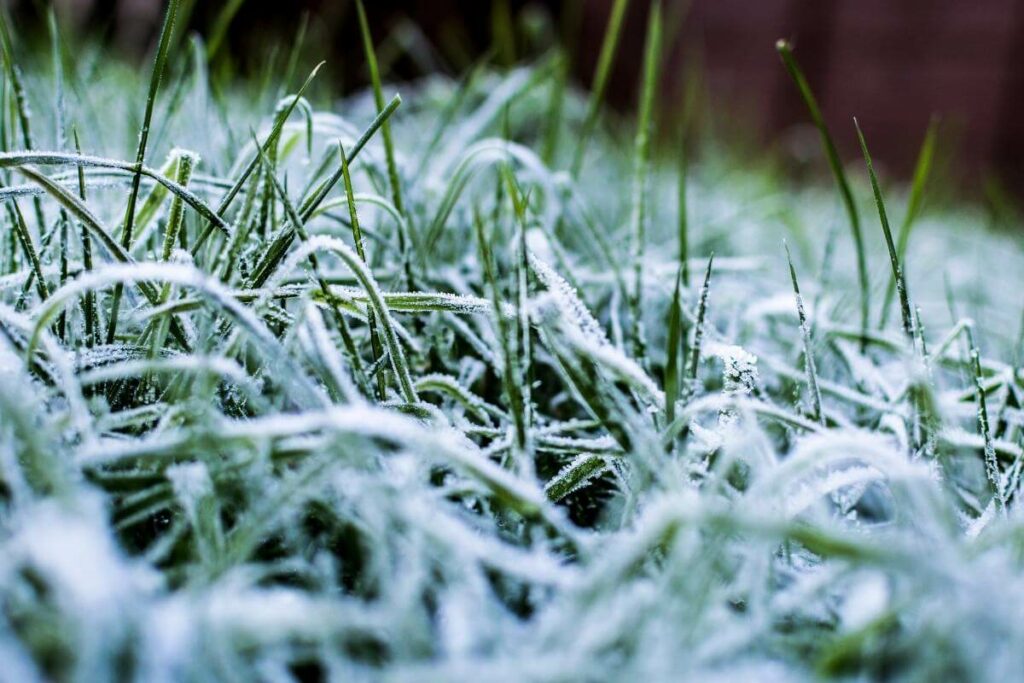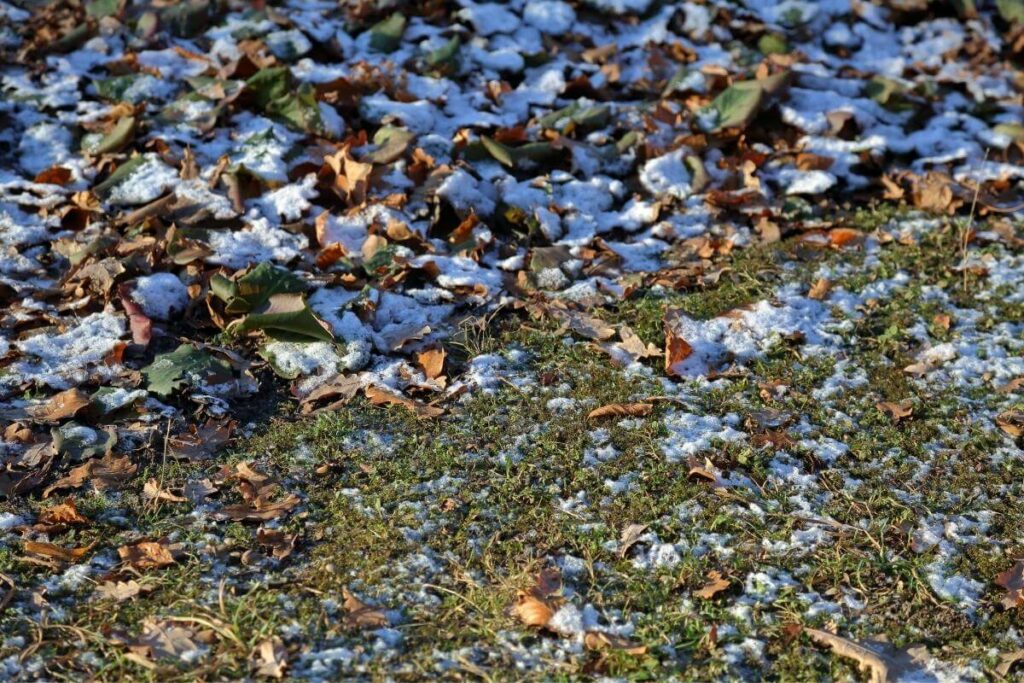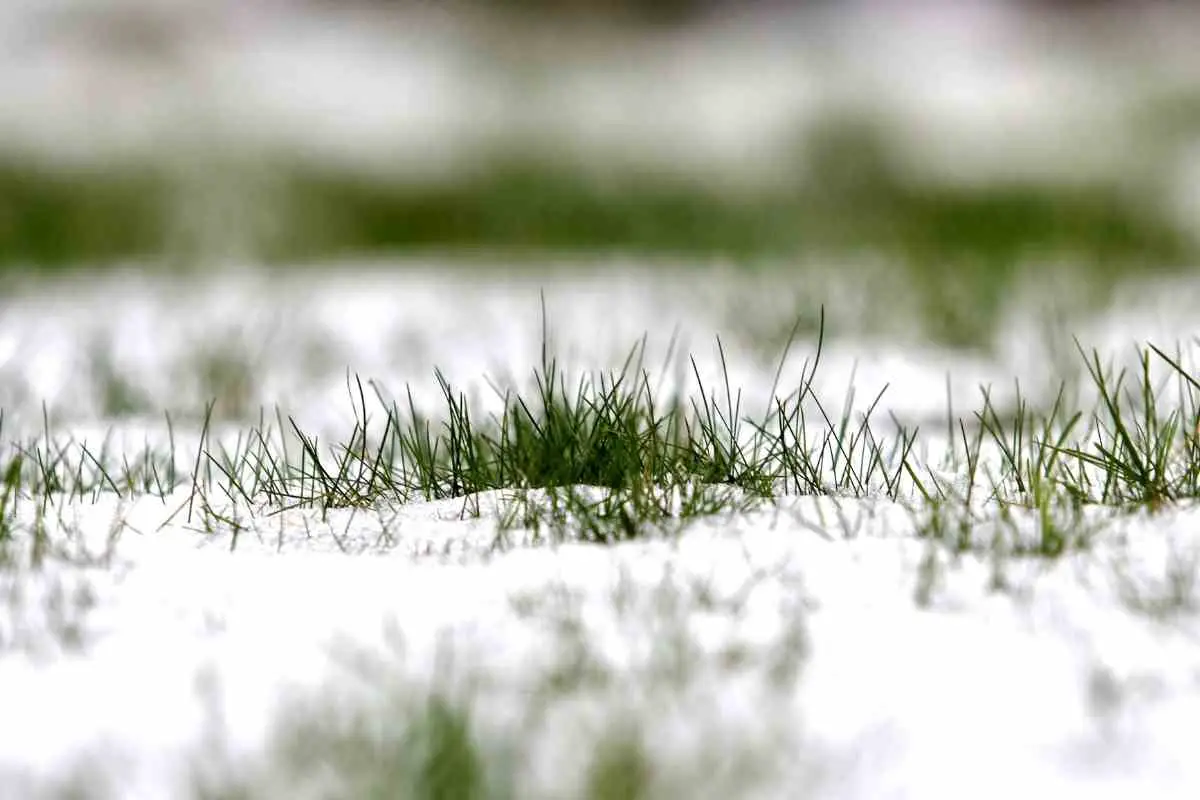As winter approaches, the temperatures reduce consistently, and most grass species become dormant or have a much slower growth rate.
However, being in a dormant state does not mean that the grass is dead.
The leaves might appear wilted, but the roots remain alive and still absorb nutrients and water.
As such, you must regularly maintain your lawn during this period to ensure it survives winter.
Therefore, your lawn requires watering in winter, although less than what is needed during summer.
Should You Water Grass In The Winter?
During the cold weather, your lawn will not need much water compared to warmer months.
However, deciding what watering pattern to follow is hard, especially if you live in a place that experiences snow or rainfall during the cold season.

Also, some places become frozen, and the grass is completely dormant.
Water is absorbed through the roots and lost through transpiration and evaporation, respectively.
During the Cold Season – The water lost through evaporation is much less than in warmer summer months. As such, the watering frequency depends on the grass type and winter temperatures.
Grass species such as Bermuda and St. Augustine become utterly dormant during the winter.
In this case, you should only water your lawn to maintain a healthy root system since the growth of the grass is halted.

Generally, an inch of water weekly will maintain a healthy lawn. However, if your region experiences snow or rainfall during the winter, you will not require watering.
On the other hand, if you live in places that experience temperate winter conditions, you will need to water your lawn more frequently.
Instead of setting a watering schedule, monitoring the conditions of your lawn may be the best way to know when to water.
If the soil becomes too dry or the grass blades start bending, it may indicate that the grass requires water.
Does My Lawn Require Winter Watering?
If you are still mowing or your grass is still growing, your lawn requires watering, even in winter.
Observing the condition of your lawn is the easiest and best way to determine the amount of water needed.

Therefore, it is vital to research the winter requirements of the type of grass species you are growing.
The following guidelines should help you manage your winter watering.
- When the temperatures fall below 30 degrees F or the below freezing, most lawns become dormant (mostly in hardiness zones 1-8). Your lawn will not require mowing since the grass will not be growing. Only the roots will be alive and hardly need water if the temperatures fall below freezing.
- In temperate or mild winters where the temperatures may drop below 30 degrees F, but most of the time without frost, grasses that do well in warm seasons will likely hibernate (zone 9 -10a). Therefore, snow or rainfall can maintain your lawn through the winter. Cool season grasses will survive with minimal management in the same conditions.
- In regions that experience warmer temperatures, usually above 40 degrees F, the lawns will remain green if appropriately managed (zones 10b-13). Under these conditions, freezing does not occur, so the grass remains healthy. To maintain a lush lawn, you should water your lawn if the rainfall is insufficient during this period.
How To Protect My Lawn From Frost
Water strengthens the lawn`s root system enabling it to protect itself from damages caused by frost.
However, you should water the grass before extreme low temperatures hit to help the plant build up energy to fight frost.
This is because the grass blades retain heat more effectively when hydrated than when it’s dry.
Key Takeaway – If you notice that the blades are dry, you should water your lawn before frost onset. The roots will absorb the water, which will help the grass to shield itself from frost damage.
What Is The Right Time To Water Your Lawn In Winter
The time you water your lawn during winter has a significant effect on the health of the lawn.

Ideally, it would help if you watered it in the morning to allow moisture to soak into the soil and eventually get absorbed by the grass.
When you water in the evening, the water will not be absorbed appropriately since the night temperatures may fall below freezing point.
Also, watering at night may encourage fungal growth.
Conclusion
Some of us have a misconception that grass does not require watering during the winter.
Water is crucial for the survival of the grass during the cold season.
In particular, your lawn requires at least half an inch of water weekly in winter, depending on the type of grass and the location.
Even when the grass is dormant, remember that the roots are still alive and will require watering if there is no snow or rainfall.
However, avoid overwatering your lawn, as this may lead to fungal growth and rot.
